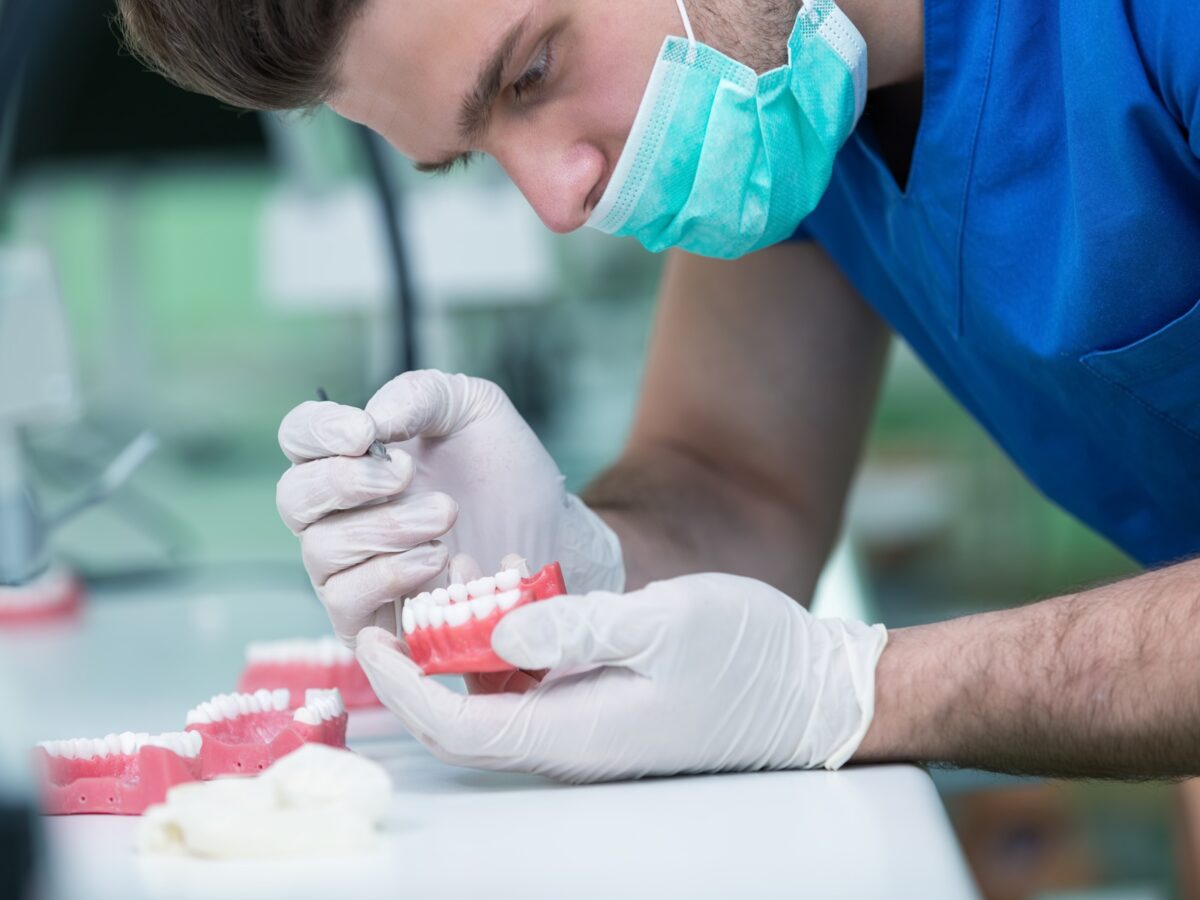Blog
Dental hygiene tips for healthy teeth & gums

Ways To Fix Loose Lower Dentures
It is essential that your dentures fit you snugly and do not hamper any activity of your daily life. Most denture wearers feel that their upper dentures fit more securely than lower ones. Despite the fact that upper dentures have to work against gravity, they gain better suction and stick to the palate.
On the contrary, lower dentures are notorious for their loose-fitting. It’s mainly because, unlike upper dentures, lower dentures do not have the luxury of fitting to stationary anatomy of large surface area. Lower dentures also combat your tongue moving in all directions (up, down, sideways), which further dislodges them. Lower dentures have just a narrow ridge of bone to adhere to. So with all these problems, how does one manage to keep the lower dentures in place?
Read on to learn the ways to fix loose lower dentures.
Remedies for a Loose Lower Denture
Loose dentures can worsen your speech, create issues while eating, and also pain if you get infected. Here are some of the ways to avoid this problem and fix your bottom dentures:
- Practice and give it time – Muscles of your tongue and face need some time and patience to get used to dentures instead of natural teeth. You will need to change your speaking and eating habits to accommodate your dentures. Also, you’ll have to chew on both sides of your mouth evenly to avoid putting excessive pressure on any one side of the denture. You may also try resting your tongue inside your mouth in different positions so as not to dislodge the denture.
- Use denture adhesive – Denture adhesives surely have a place in helping you adapt to dentures. You would usually need just three small dots to keep the dentures in place. Putting more adhesive is not going to make it better. If your denture is actually ill-fitted or poorly made, then no amount of denture fixative can help your dentures stay in place. If your lower dentures do not fit in place even after dental adhesive, you must seek help from your dentist to reline them. Probably your gums have changed a bit, but if there’s a different issue, then it is time to consider getting new dentures made.
- Get a hard reline done – A reline helps in readapting your denture base to the current anatomy of your ridge. It usually takes a day or two to get completed at the dentist. You will have to go without your dentures for that amount of time while your dentist relines your dentures in the lab.
- Dental implants for extra security – Dental implants are the best way to secure your lower dentures in place. If your jawbone is in good health and you have a reasonable amount of jawbone, then you should go for an implant-secured dental implant. Dentures secured by dental implants can be life-changing. Dental implants also help in reserving bone and avoid any long-term bone resorption that naturally occurs over time.
Dentures can get loose also because of wear and tear over time or bone resorption. It is important to report any pain or ill-fitted denture to your dentist as s/he can quickly assess the reason and give you the most appropriate solution.
